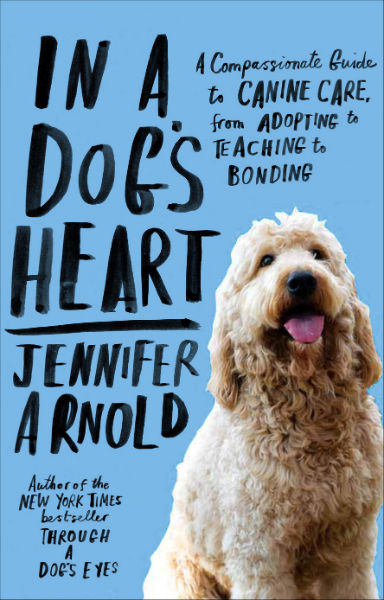
My heart was captured with the first sniff of her sweet breath. She was warm, furry and utterly dependent. At eight weeks old, Nan, as we named her, immediately claimed an important place in our family. Fifteen years later, she still holds my affection like she did that first day. I'm a sucker for a puppy... even at 15.
Nothing is more wonderful than a new puppy. If your holiday gifts included one of these precious creatures, lucky you! But you should know that keeping him healthy and happy is not without effort. Having raised over 1,200 puppies in the past 20 years with Canine Assistants, I've learned a few things that may help to maintain your dog's good health and devotion -- and your sanity.
Puppies need to be vaccinated and de-wormed on a regular basis, so find a good veterinarian, one that you're comfortable with and can trust. This will ensure your puppy gets the care he needs now, while establishing a relationship with the doctor who will care for (and about) him for a lifetime.
Set a schedule and be rigid in maintaining it, even if you have to enlist the aid of others. Young puppies sleep, toilet, play, toilet, eat, toilet -- and repeat.
Sleep: Buy an exercise pen so that you can establish a small, safe area where he can't get himself into trouble. You may want to put a small crate inside the pen where your dog can curl up to sleep. Keep in mind that your puppy will likely chew on anything he can reach; if he can shred things -- he can swallow them -- so be careful. If your puppy cries when alone, please be understanding. Until you adopted him, he was with his siblings and mom. It must be terribly scary to suddenly be alone. He will adjust but, until then, you might consider putting his pen close to your bed or even putting him in the bed with you. There is nothing like sleeping together to form a strong bond!
Toileting: Remember puppies don't know where you want them to toilet. It is up to you to take him where you want him to go. And, when you reach the appropriate potty spot, stay with him to verify that he goes, and then reward him. Don't assume he went simply because you put him outside. That's a rookie mistake. Your puppy should be given the opportunity to toilet the moment he wakes, even if it means you have wait yourself. He goes first! He also needs to go after eating and playing. Watch him while he's playing for signs, such as sniffing, which may indicate he needs to go. Sometimes puppies, like young children, forget their toilet training when absorbed in play.
Eating: Pick a high quality puppy food and use other treats sparingly to avoid upsetting young stomachs. I prefer to feed puppies very small amounts in their bowls two or three times a day. The remainder of their kibble I put into a zip-lock bag, mixing in a few pieces of particularly yummy treats for added desirability. Then, I use the contents of the bag as treats throughout the day.
Playing: Get a toy box and fill it with a few well-made toys your puppy seems to enjoy. Then, close the lid. Give your puppy one toy at a time to keep him excited by the contents of his toy chest.
Socialize, socialize, socialize! Your puppy needs to be introduced and acclimated to as many people, animals, and environments you safely can. Until approximately 16-weeks of age, your puppy isn't fully vaccinated so avoid places unknown dogs frequent. Find a few gentle dogs to help him learn appropriate behavior with other dogs. Don't be too horrified if these older dogs have to correct your puppy for mistakes. That is an important part in learning to be a good canine citizen. Remember, puppies are incredibly melodramatic so don't be surprised if he screams like his leg is being removed without benefit of anesthesia. Many times a puppy who claims to be unable to walk on one paw will suddenly be unable to walk on another paw, forgetting which one is suppose to hurt. Puppy dramatics often exceed puppy memory!
Find a local trainer in case you need professional help with specific concerns. I suggest finding a trainer certified by Victoria Stilwell (positively.com) in your area; with Positively.com, you can be assured your trainer will be both kind and knowledgeable. If you don't have a Positively trainer in your area, I also suggest an APDT-certified trainer. (apdt.com).
For more detailed tips on caring for your puppy, please check out my book, In a Dog's Heart. And, as you hold your new puppy tonight, please take a whiff of his warm, soft breath for me--it's my favorite scent!

